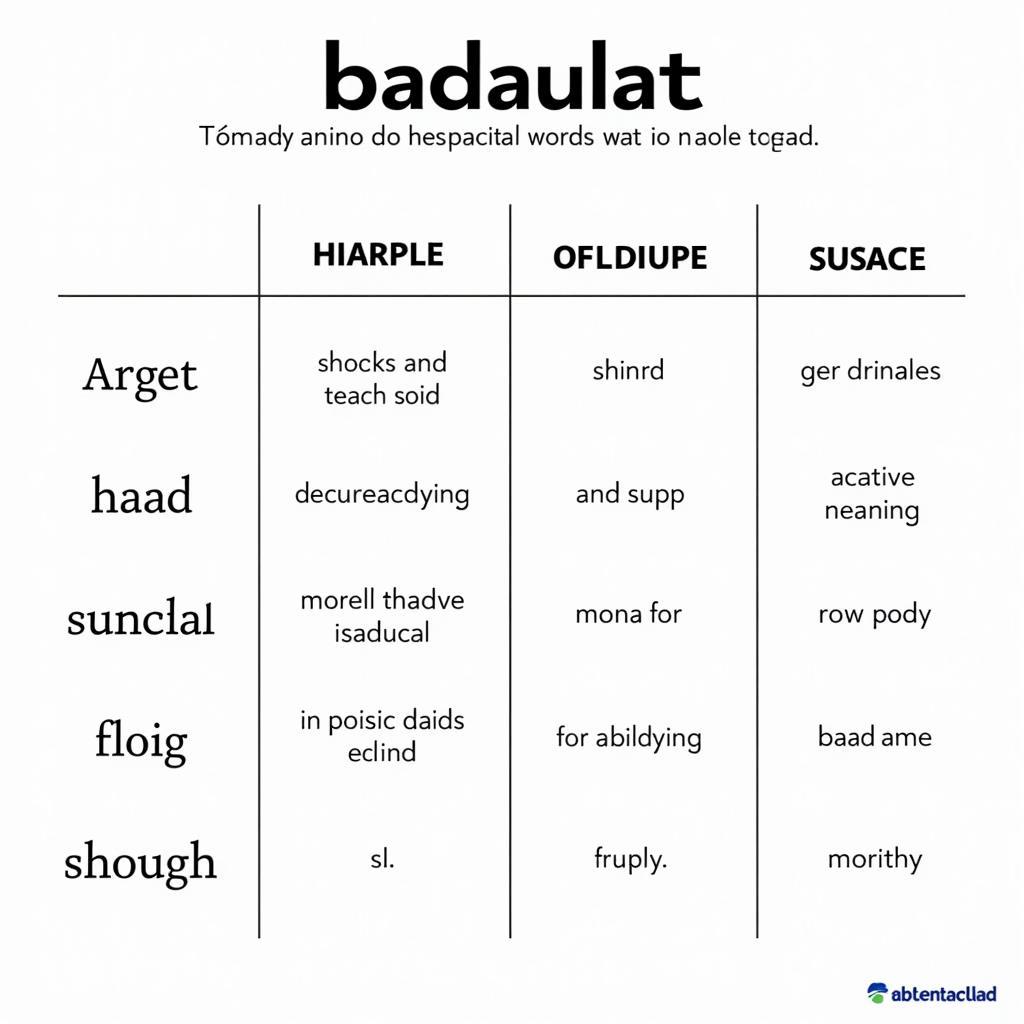The word “badaulat” (बदौलत) is a common term in Hindi, often encountered in conversations, literature, and music. It carries a nuanced meaning that goes beyond a simple translation, reflecting the richness and depth of the Hindi language. Understanding its true essence can enhance your appreciation for Hindi and improve your communication skills.
Delving into the Meaning of “Badaulat”
“Badaulat” essentially translates to “thanks to” or “due to” in English. However, it’s more than just acknowledging a cause-and-effect relationship. It conveys a sense of gratitude and respect, often implying that the outcome is a positive one. It’s used to attribute a favorable outcome to someone or something.
Using “Badaulat” in Sentences
Here are a few examples illustrating the usage of “badaulat” in different contexts:
- “Uski badaulat main safal hua” (उसकी बदौलत मैं सफल हुआ) – Thanks to him/her, I succeeded. This example showcases how “badaulat” attributes success to someone’s help or influence.
- “Aapki badaulat mujhe yeh mauka mila” (आपकी बदौलत मुझे यह मौका मिला) – Due to you, I got this opportunity. This highlights how “badaulat” is used to express gratitude for an opportunity received.
- “Baarish ki badaulat fasal acchi hui” (बारिश की बदौलत फसल अच्छी हुई) – Thanks to the rain, the harvest was good. This demonstrates how “badaulat” can be used to acknowledge a natural element’s positive impact.
Synonyms and Related Terms for “Badaulat”
While “badaulat” carries a specific nuance, there are other Hindi words that express similar meanings:
- Krupa se (कृपा से): By the grace of. This term often has a religious connotation.
- Karan (कारण): Because of. This is a more general term for cause and effect.
- Vajah se (वजह से): Due to. Similar to “karan,” it indicates a reason.
 Comparing Badaulat with Synonyms
Comparing Badaulat with Synonyms
“Badaulat” in Everyday Conversations
Understanding the nuanced meaning of “badaulat” can significantly enhance your understanding of Hindi conversations. It’s a word that reflects the cultural emphasis on gratitude and respect.
How does “badaulat” differ from a simple “thank you”?
While “thank you” (dhanyavaad – धन्यवाद) expresses gratitude directly, “badaulat” attributes a positive outcome to a specific cause. It’s a more profound way of acknowledging someone’s contribution.
Can “badaulat” be used in formal and informal settings?
Yes, “badaulat” is versatile and appropriate for both formal and informal conversations.
Conclusion
Understanding the meaning of “badaulat” provides a deeper understanding of the Hindi language and its cultural nuances. Using this word appropriately can enrich your communication and demonstrate your appreciation for the language’s intricacies. By incorporating “badaulat” into your vocabulary, you can express gratitude and acknowledge the positive influence of others in a more meaningful way.
FAQ
- What is the literal translation of “badaulat”?
- Can “badaulat” be used to attribute negative outcomes?
- What are some common mistakes to avoid when using “badaulat”?
- Is “badaulat” used in other Indian languages?
- How does “badaulat” reflect Indian culture?
Contact Us
For further assistance, please contact us at Contact@ViperCircle.com or visit our office at G-5, लोअर परेल, सेनापति बापट मार्ग, मुंबई, महाराष्ट्र – 400013, भारत।. Our customer support team is available 24/7.